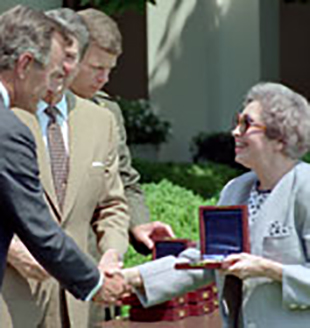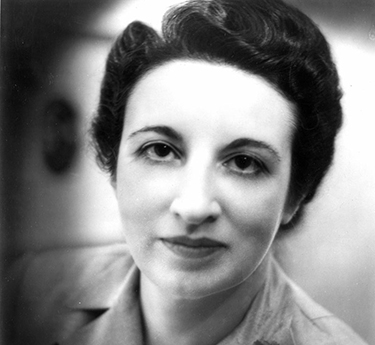

Anne Anastasi (1908-2001)
“I was going to take tough things and make them simple.”
–Anne Anastasi
National Medal of Science recipient in 1987 ”for her work in the development of the discipline of differential psychology as a behavioral science, which illuminates the way traits are influenced by heredity and environment and the methods by which traits and human characteristics are measured.“
Anne Anastasi was born in 1908 to an Italian immigrant family in Manhattan, and was raised by her mother and grandmother after her father died when she was 1 year old. She was home-schooled as a child and entered Barnard College at the age of 15. By 1929, Anastasi had earned her doctoral degree in psychology from Columbia University, where she met her future husband, fellow psychologist John Porter Foley, Jr.

Anne Anastasi
Anastasi began her career as an instructor at Barnard, and overcame the tough economic climate by hiring research assistants through the programs of the National Youth Administration and the Works Progress Administration. Her research focused on the interaction between heredity and environment, and she suggested that context and individual differences should be taken into account when designing psychometric tests. ”No intelligence test can be culture free,“ noted Anastasi, ”because human intelligence is not culture free.“
Anastasi wrote several books that would become classics, including “Psychological Testing,” a text that changed the field and is still used in undergraduate and graduate psychology courses today. Her expertise earned her the nickname “Test Guru”.
In 1947, Anastasi moved to Fordham University, where she eventually became chair of the psychology department. She was elected president of the American Psychological Association in 1972 and received the American Psychological Foundation’s Gold Medal for Life Achievement.
Image descriptions and credits
Any opinions, findings, conclusions or recommendations presented in this material are only those of the presenter grantee/researcher, author, or
agency employee; and do not necessarily reflect the views of the National Science Foundation.


